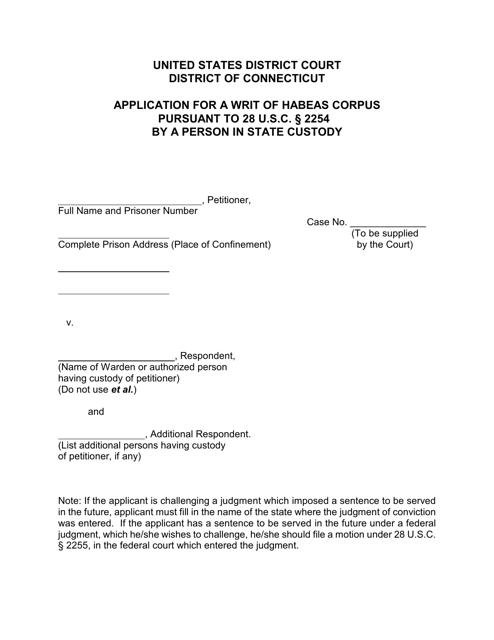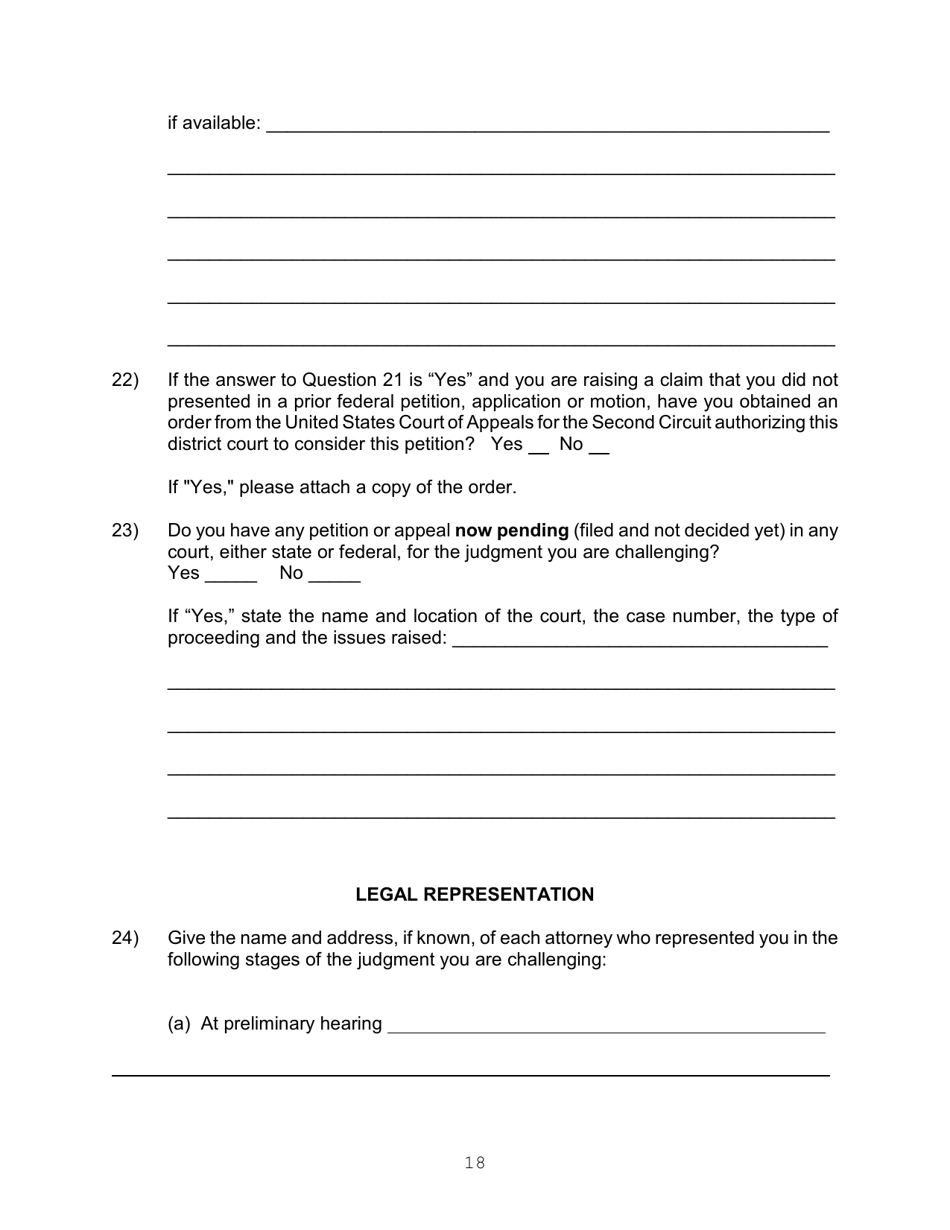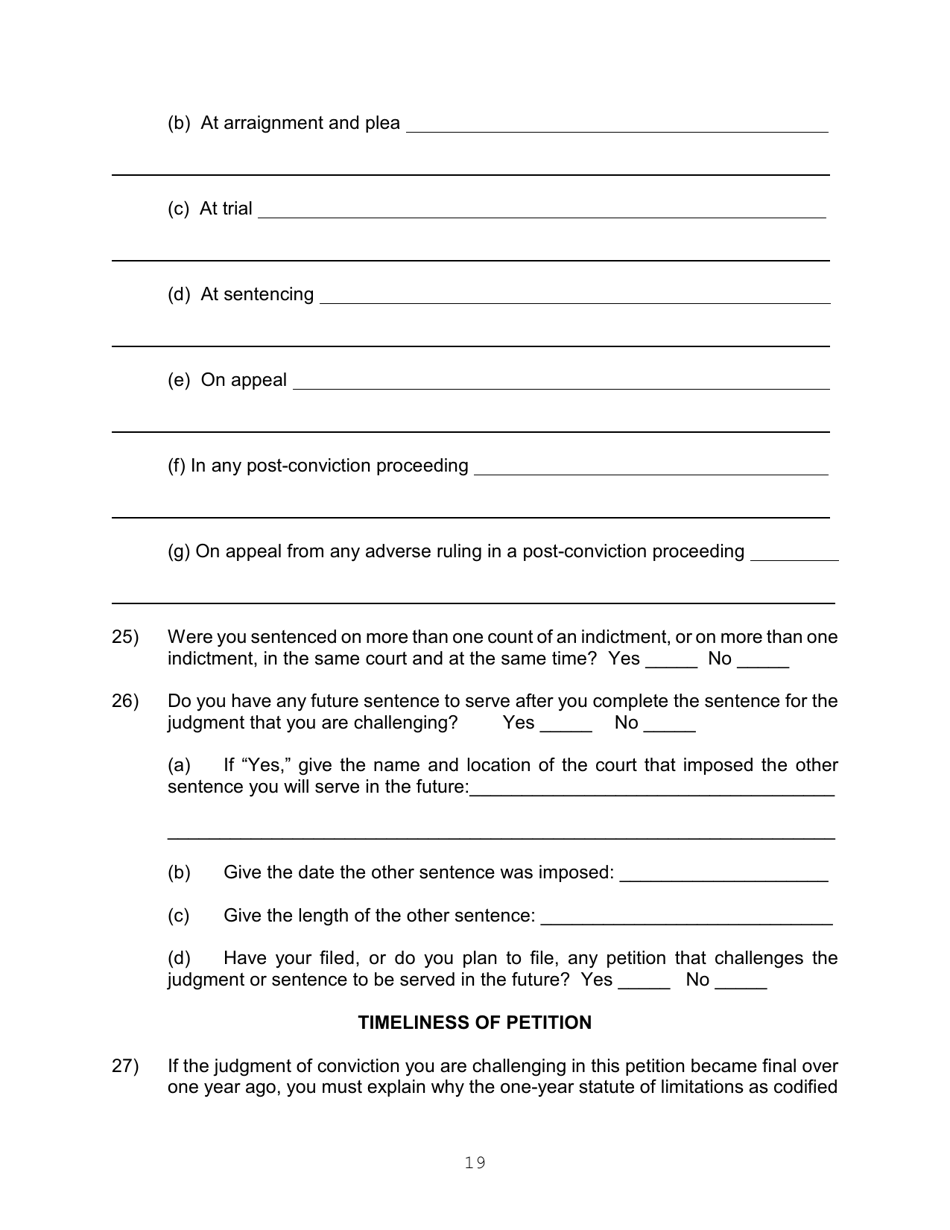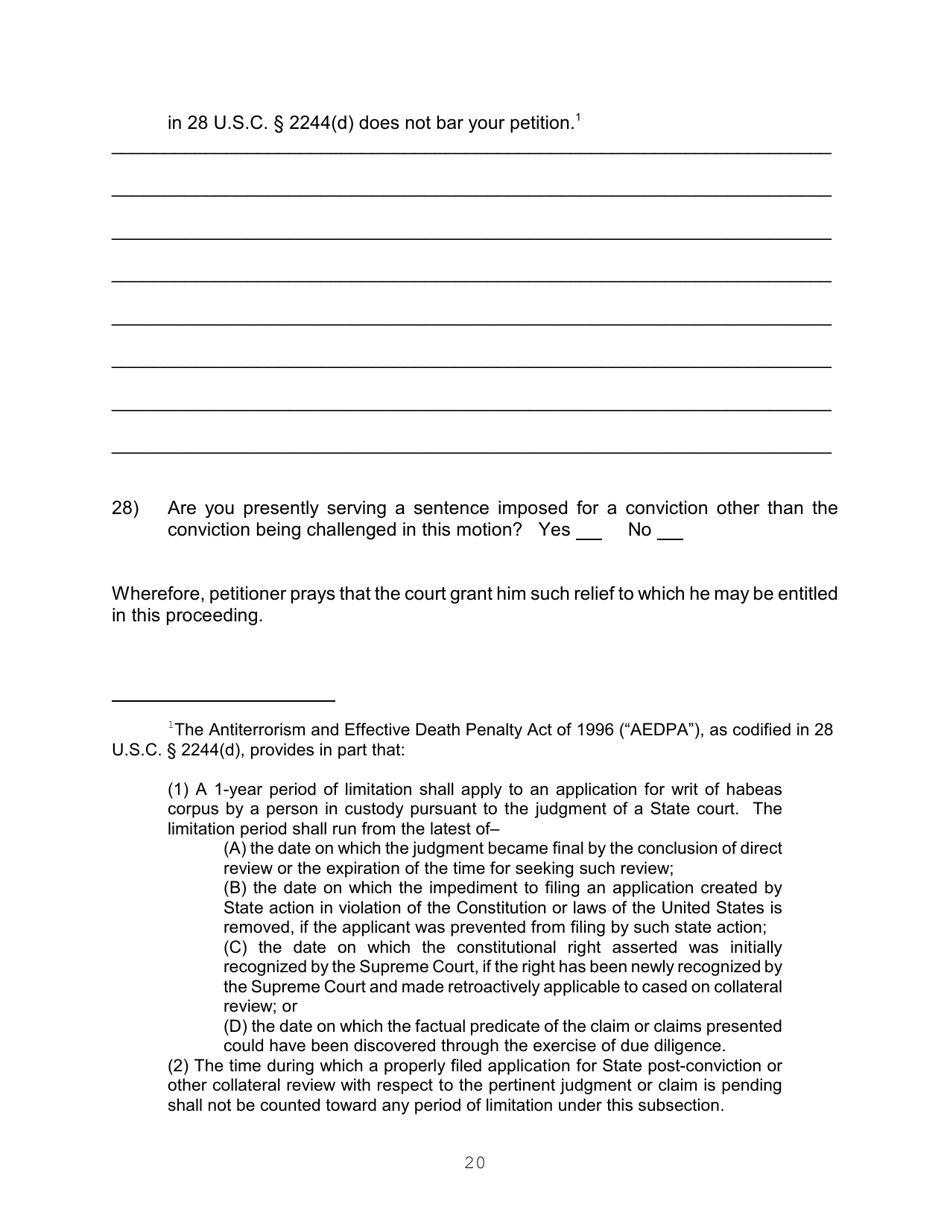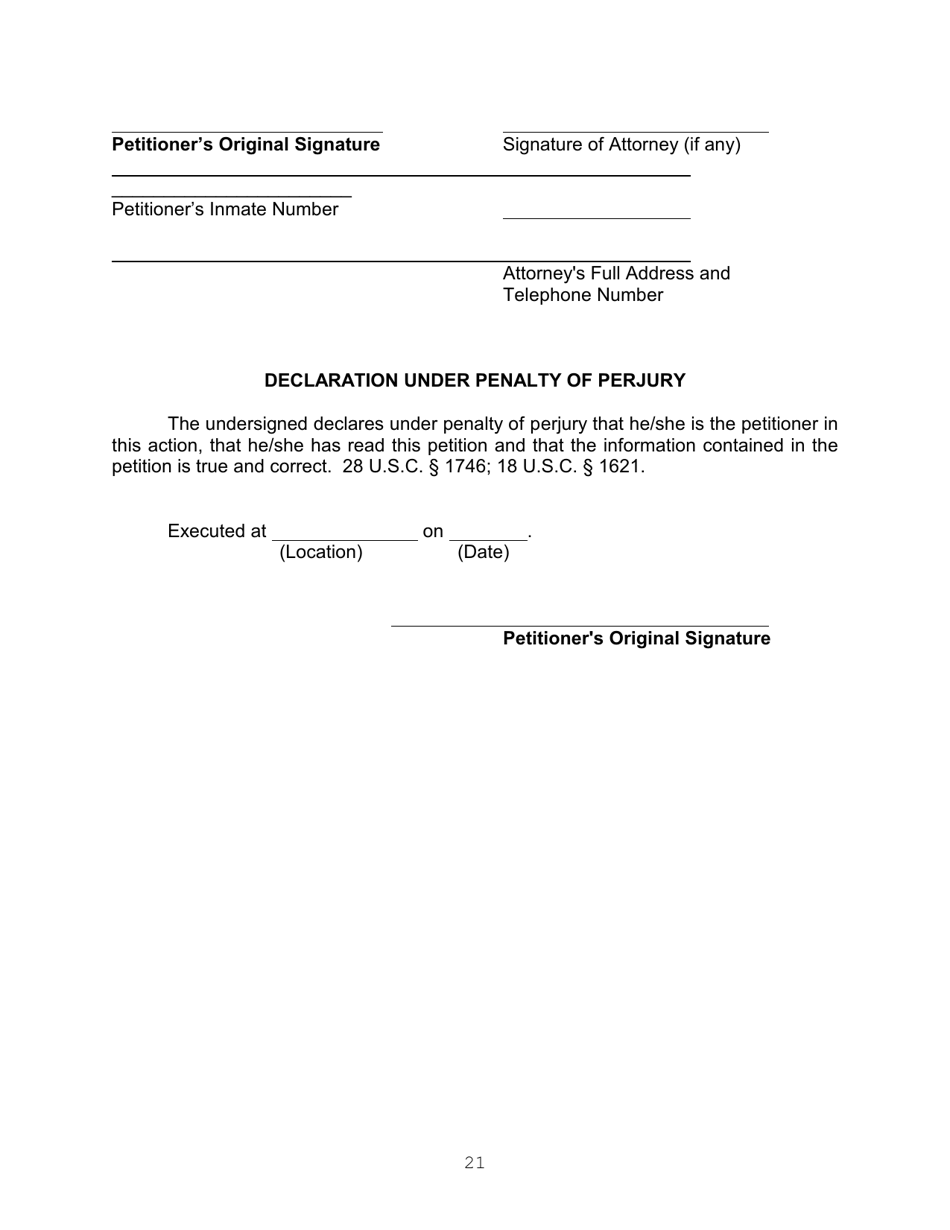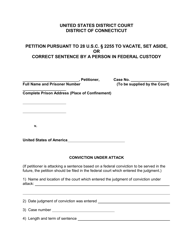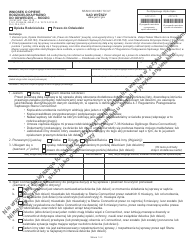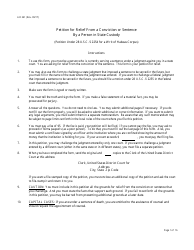Application for a Writ of Habeas Corpus Pursuant to 28 U.s.c. 2254 by a Person in State Custody - Connecticut
Application for a Writ of Habeas Corpus Pursuant to 28 U.s.c. 2254 by a Person in State Custody is a legal document that was released by the United States District Court - District of Connecticut - a government authority operating within Connecticut.
FAQ
Q: What is an Application for a Writ of Habeas Corpus?
A: An Application for a Writ of Habeas Corpus is a legal document filed by a person who is in state custody and believes their imprisonment is unlawful.
Q: What is the purpose of filing an Application for a Writ of Habeas Corpus?
A: The purpose of filing an Application for a Writ of Habeas Corpus is to challenge the constitutionality of a person's imprisonment.
Q: What is 28 U.S.C. 2254?
A: 28 U.S.C. 2254 is a federal law that provides a mechanism for state prisoners to challenge the legality of their detention in federal court.
Q: Who can file an Application for a Writ of Habeas Corpus?
A: A person who is in state custody can file an Application for a Writ of Habeas Corpus to challenge the lawfulness of their imprisonment.
Q: What is the role of Connecticut in this document?
A: Connecticut is the state where the person in custody is located and where the habeas corpus application is being filed.
Q: What does it mean for a person to be in state custody?
A: Being in state custody means that a person is being held in a prison, jail, or other detention facility under the authority of a state government.
Q: What is the importance of challenging the constitutionality of imprisonment?
A: Challenging the constitutionality of imprisonment is important to protect individuals' rights and ensure that they are not unlawfully deprived of their liberty.
Q: What happens after filing an Application for a Writ of Habeas Corpus?
A: After filing, the court will review the application and determine whether there are grounds for granting the writ, which could result in the person's release from custody.
Q: What other legal options are available to challenge imprisonment?
A: Other legal options to challenge imprisonment include appeals, post-conviction motions, and petitions for pardon or clemency.
Q: Can a person in state custody represent themselves in court?
A: Yes, a person in state custody can choose to represent themselves in court, although it is often recommended to seek legal assistance.
Form Details:
- The latest edition currently provided by the United States District Court - District of Connecticut;
- Ready to use and print;
- Easy to customize;
- Compatible with most PDF-viewing applications;
- Fill out the form in our online filing application.
Download a printable version of the form by clicking the link below or browse more documents and templates provided by the United States District Court - District of Connecticut.
